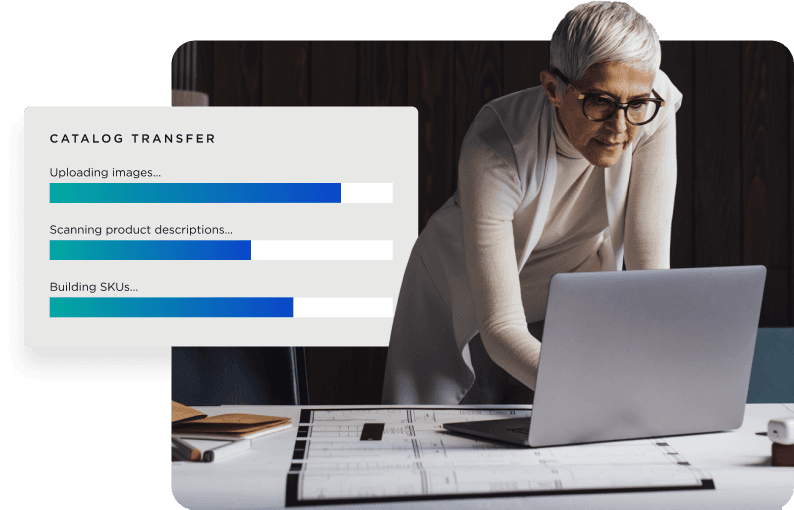BigCommerce vs Adobe Commerce (formerly Magento)
For low maintenance, native agility, and often lower TCO.

Former Adobe Commerce merchants on BigCommerce include:
Why Adobe Commerce (formerly Magento) merchants switched to BigCommerce
Create digital experience differentiation.

Design with our customisable theme builders and Stencil framework or use your own CMS or DXP in headless design.
“Because we have the DTC and B2B sides of the business, we really needed a website that had the look and feel of a retail site, while also providing that B2B functionality. BigCommerce is perfect in that aspect.”
Joe Sharplin, Head of Design AS Colour
— Migrated from: Magento 1
Innovate and scale with no ceiling.
Simplify growth, improve conversion, test and expand to new markets — without overcomplication.
“BigCommerce helped us move away from operating on multiple back-end systems that didn’t talk to each other well and, at times, led to a less-than-ideal consumer experience.”
Kristi Jackson, Director of Marketing Yeti Cycles — Migrated From: Magento 1
Less time fixing. More time growing.
Tired of patches, crashes, and delays? Imagine what you’ll do when not stuck in site maintenance.
“One of the primary things we wanted was a system that could set a foundation for where we wanted to go and to further use technology to help modernise us and make us quicker.”
Lee Hackett, Ecommerce & Marketing Manager FastFix
— Migrated from: Magento 1
Unparalleled partnership after the sale.
Leverage the industry's most trusted experts, obsessed with your success every step of the way.
“BigCommerce provides its customers a roadmap for improvement rather than getting them on the platform and then leaving them to figure it out on their own.”
Dave Munson, Founder and CEO Saddleback Leather Company — Migrated From: Magento 2
Get more freedom from your ecommerce.
More capabilities, less complication.
B2B
Add revenue and deliver unique experiences for both B2B and B2C buyers with B2B Edition.
Omnichannel
Maximise traffic, demand gen, sales, and ROAS with BigCommerce’s Feedonomics.
Multi-Storefront
Add truly new brands, regions, and segments with no clones. Manage all from one platform.
Innovative Checkout
Passwordless, one-click checkout, choose your own payments, dynamic wallet buttons, and Buy With Prime.
Integrations
Integrate with leading CRM, ERP, PIM, and more with pre-built tools or customise with our open APIs and SDKs.
What experts say about BigCommerce
Rated Exceptional for Total Cost of Ownership in Mid-Market and Enterprise
More sales. More freedom. Less friction.
That’s BigCommerce. Discover why more brands are leaving Adobe Commerce Cloud with a free demo today.
See for yourself.
We’d be happy to take you through a demo tailored for your specific needs.


